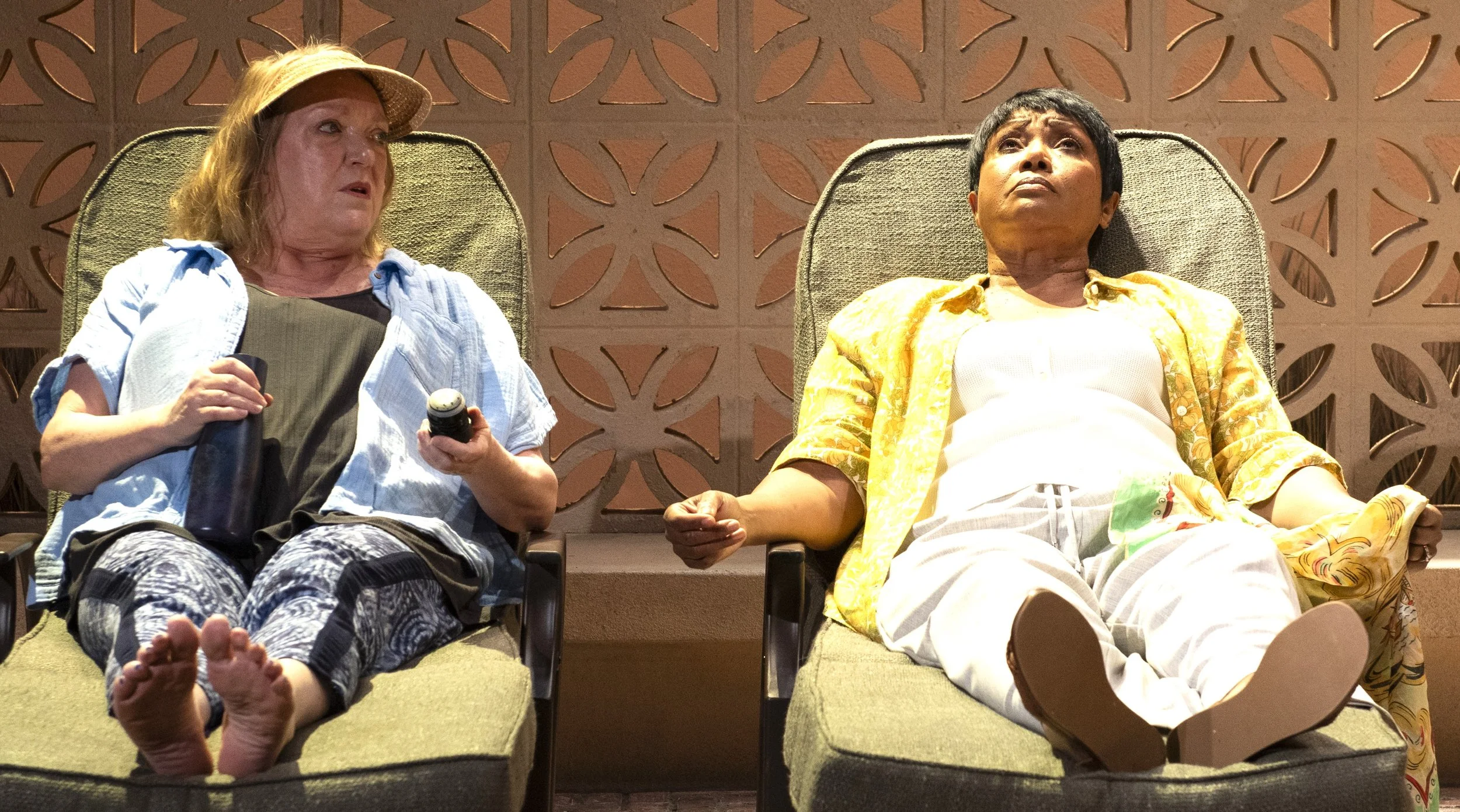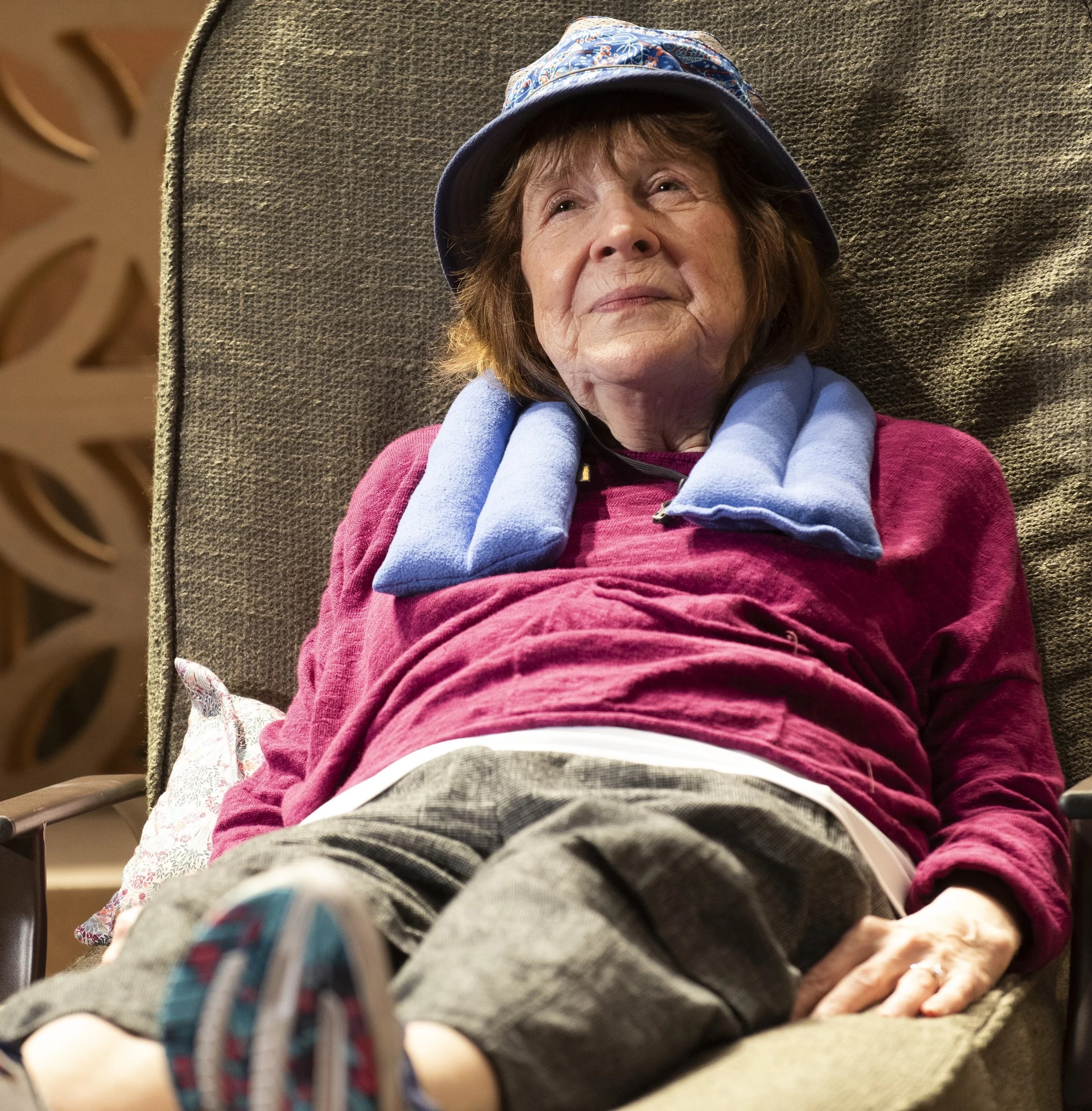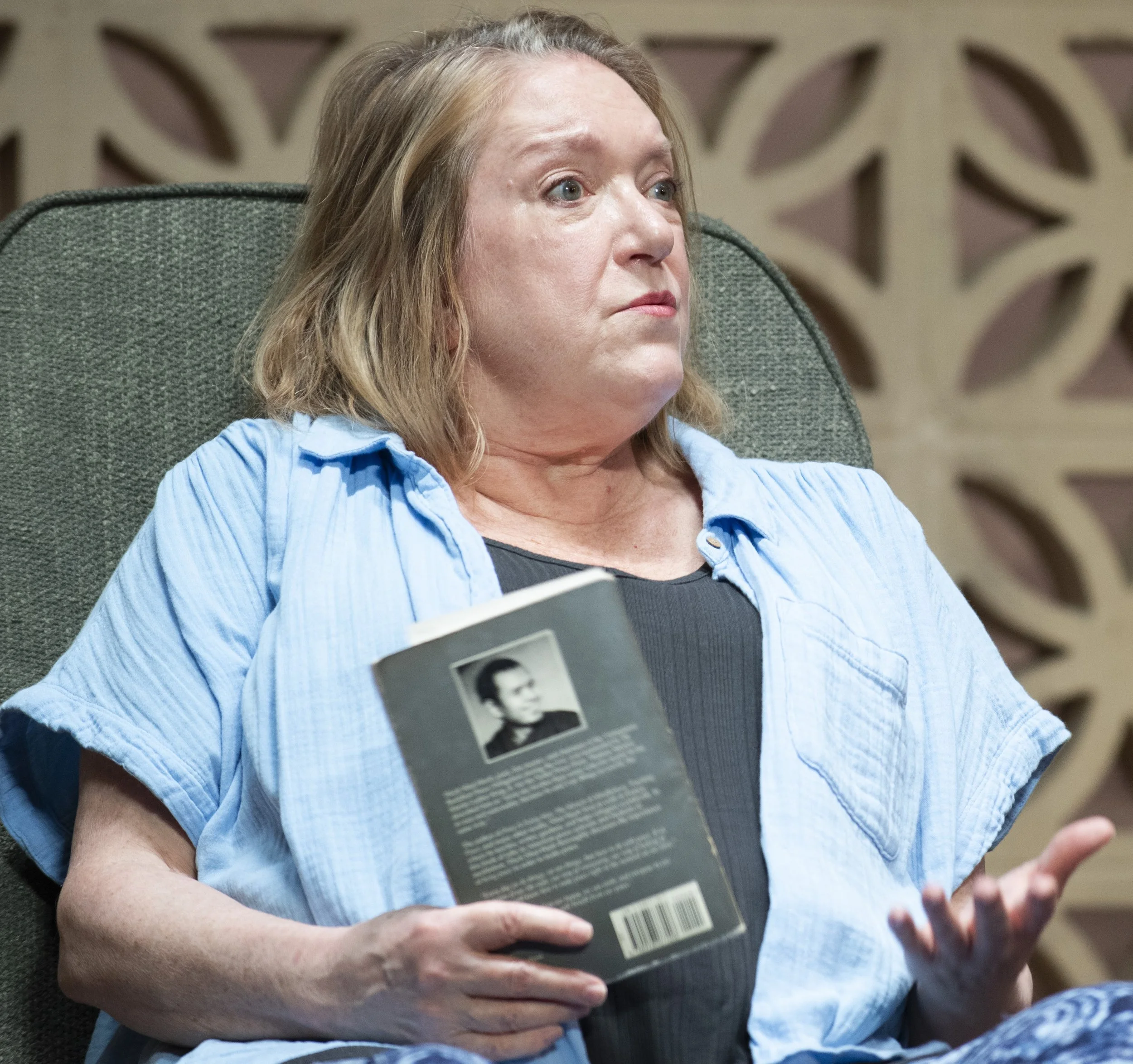Ginnie (Kristine Nielsen, left) and Elaine (Brenda Pressley) spend another day fasting at a clinic in Northern California, in Annie Baker’s Infinite Life.
Annie Baker makes her much-anticipated return to Off-Broadway with the world premiere of Infinite Life, a coproduction of the Atlantic Theater Company and Britain’s National Theatre. The play, once titled On the Uses of Pain for Life, was slated for Fall 2021 at Signature Theatre, but it never materialized; Baker’s most recent play, The Antipodes, was produced at Signature in 2017. It takes only a few moments of Infinite Life’s halting and delightfully awkward opening exchange for Baker to captivate with her uncanny blend of the naturalistic and the absurd, homing in on human frailty with a merciless yet empathetic eye, this time trained on patients at a clinic for alternative pain therapies in Northern California.
Sofi (Christina Kirk), preparing to leave at the end of her stay.
That exchange involves Sofi (Christina Kirk), reclining in a patio chair and immersed in a book, Daniel Deronda, and the older Eileen (Marylouise Burke), also in a lounger and clearly hankering for a conversation, and finally triumphing, as Sofi gives up on George Eliot’s novel to make small talk. The clinic’s medical rationale, which revolves around prolonged fasting, is never fully explained, and the resident “doctor” remains offstage, invoked only in his secondhand pronouncements of how long someone should fast or whether juice should be allowed.
The other lives in Infinite Life are also patients: Ginnie (Kristine Nielsen), a soon-to-be-retired flight attendant suffering the effects of chronic Lyme disease; Yvette (Mia Katigbak), whose baroque medical history is given a lengthy monologue (“eleven minutes later,” says Sofi—who instigates jumps in time throughout the play—and Yvette is just getting started); Elaine (Brenda Pressley), who is excessively alert to the dangers of pesticides on fruit, but is nonetheless a level-headed presence; and Nelson (Pete Simpson), the only male, a middle-aged fintech bro who shows up, shirtless, more than midway through the play and throws the group dynamic into a low-key chaos.
The patients appear to be using fasting as an attempt to find a cure before or after undergoing more conventional medical procedures. So the drama isn’t contingent upon whether this is a scam and the doctor a quack; Baker is more interested in what happens to desire, human connection, and one’s view of oneself in light of the betrayal of the body.
Eileen has nerve pain that has no cure, only the hope that it will go away on its own eventually. Photographs by Ahron R. Foster.
Directed by James Macdonald, the action all takes place in the row of loungers, which, the audience learns, are facing an unseen bakery parking lot (scenic design by dots); Bray Poor’s excellent sound design includes the hum of nearby highway traffic, which then pivots to nighttime crickets during the play’s sudden lapses in time, accompanied by Isabella Byrd’s lighting design, capturing not only day versus night, but those not-quite-either hours as well.
There is nothing to do but sit in the loungers and hope to feel better, and prolonged fasting makes concentration hard, so solitary reading gives way to seemingly aimless conversation. The dialogue is rich with Baker’s signature pauses, and Macdonald and the wonderful ensemble handle them perfectly: it never appears that the actors are simply waiting—rather, they are always reacting, assessing, weighing what has just been said, which generates humor and subtle conflict. But the play never lingers, as Sofi declares another segment of time passing, and characters and moments will come and go.
Ginnie poses an ethical question to the group based on the book she is reading.
An incredible vulnerability is on display, whether it’s Sofi leaving graphic sexual voice mails to one person and then sad, desperate, pleading ones to another, or Nelson agreeing to share photos of his cancerous colon, an action charged with fear buried deep beneath his laconic, blasé attitude. Moments like these are both humorous, in part because of their extremity, but also revealing of the character’s physical and psychic pain; for Sofi, in particular, her intense physical pain is profoundly tied up with her sexuality, and Nelson’s arrival throws that into relief. Baker can also be a poet of the revolting, such as when Nelson matter-of-factly describes the sensation of defecating out of his mouth.
Infinite Life doesn’t revolve around a single conflict: in fact, the biggest eruption of anger and frustration isn’t shown, but, rather, with dimmed lights and in a quiet voice, is narrated by Eileen. This maneuver shows Baker’s determination to avoid melodrama—there is no rupture of friendship, death of a patient, or bite-sized nuggets of wisdom. Even in the tender final moment between Sofi and Eileen there is the silly mundanity of a mobile-phone alarm, which signals to Sofi that she must order an Uber to the airport, but also to the audience that our time with these beautifully contradictory and strangely human characters has come to an end.
Infinite Life runs through Oct. 8 at the Linda Gross Theater (336 W 20th St.). Evening performances are Tuesday and Thursday at 7 p.m. and Wednesday, Friday, and Saturday at 8 p.m.; matinees are Wednesday, Saturday, and Sunday at 2 p.m. Tickets are available by visiting atlantictheater.org.
Playwright: Annie Baker
Direction: James Macdonald
Sets: dots
Costumes: Ásta Bennie Hostetter
Lighting: Isabella Byrd
Sound: Bray Poor






